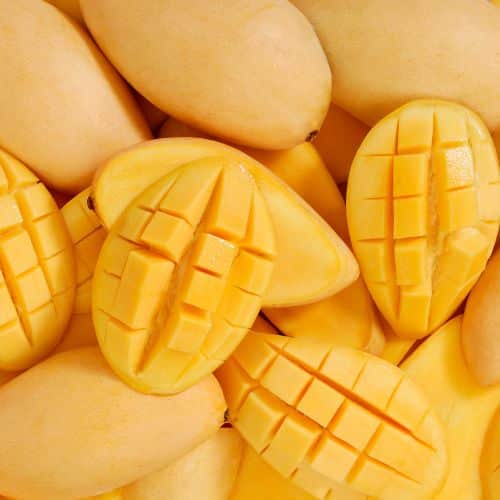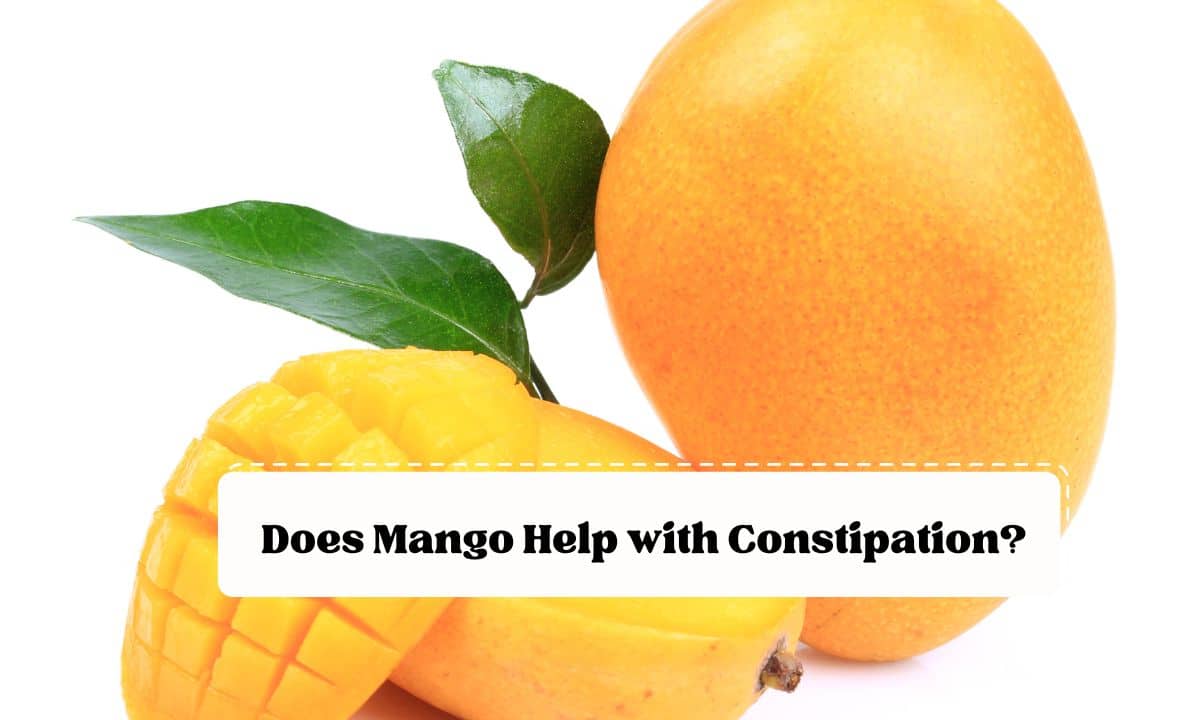Does Mango Help with Constipation?
Do you suffer from constipation and are looking for a natural remedy? If so, then you may have heard that eating mangoes is a good idea. But does mango actually help with constipation?
Table of Contents
ToggleMangoes may provide relief from constipation. We will explore the potential benefits and risks of eating mangoes for this purpose and give advice on how to incorporate them into your diet.
It is essential to consult your doctor before trying any new treatment. So if you’re looking for a way to ease your constipation symptoms naturally, read on!
Nutrients in Mango that Help with Constipation

Dietary Fiber
Many Americans lack fiber in their diet, and this can contribute to constipation.
Mango contains two types of fiber: insoluble and soluble.
Insoluble Fiber
Insoluble is the kind of fiber that adds bulk to your stool, making it easier for it to pass through your digestive tract.
Eating insoluble fiber in mango thereby makes it easier for stool to move through the GI tract. In other words, it helps to keep your digestive system running smoothly. Thus, insoluble fiber acts as a kind of natural laxative.
Soluble Fiber
Soluble fiber helps to draw water from the gut, keeping stool soft and ensuring it passes through the digestive tract easily. You can find soluble fiber in mango skin and flesh.
Therefore, consuming soluble fiber from mangoes can help soften your stool. This will make it move more quickly through your system and thereby help ease constipation.
In addition, this type of fiber acts as a prebiotic, which nourishes your gut bacteria. Feeding the good bugs in your digestive tract encourages the growth of beneficial bacteria. This improves gut health and relieves constipation.
When you eat mangos, you add both soluble and insoluble fiber to your diet. This can help to relieve constipation and support a healthy digestive tract.
Water

Dehydration is an extremely common cause of constipation.
Mangoes have a high water content, so they will help keep you hydrated to encourage softer stools.
Vitamin C
Mangoes are also rich in vitamin C, a water-soluble vitamin that can affect constipation in several ways.
Because vitamin C has water-attracting characteristics, it can loosen stool by increasing its water content. This can make it simpler for stool to pass and lower the overall risk of constipation.
Also, vitamin C boosts the absorption of dietary fiber, contributing to constipation relief.
Vitamin C is an antioxidant. It protects the digestive cells from inflammation and free radicals. Free radicals are harmful substances that damage the tissues of the body. By promoting a healthy GI tract, vitamin C can help prevent constipation.
Fructose and Sorbitol
Fructose and sorbitol are natural sugars that have mild laxative effects and are found in mangoes.
Because these natural sugars can attract water into the intestines, they help soften stool and allow it to pass through easier.
Also, these sugars help the intestinal muscles work more efficiently, helping stool pass through smoothly.
However, you must be careful with over-consuming these natural sugars as they may cause diarrhea and bloating.
Mango and Constipation
There are a couple of studies that suggest that eating mango can help with constipation.
One study examined the effects on constipation of eating ~10 ounces of the fruit for four weeks.
The findings revealed that the participants who consumed it experienced a more significant improvement in symptoms compared to those who consumed commercial fiber products available in the market.

Another study looked at ~3 ounces grams of fresh mango consumption and its effect on the gut microbiome. In just four weeks, there was a clear increase in gut diversity, which in turn, may help with constipation.
Is Mango Really the Best Fruit for Constipation?
Every person is different, and every food affects everyone differently.
Furthermore, one mango has 46 grams of sugar—which is a lot.
It’s clear that this fruit can help with constipation. But the following are other fruits that can provide the same benefit with less sugar.
- Prunes
- Apples
- Pears
- Citrus fruits
- Kiwi
- Papaya
- Plums
- Berries
The Bottom Line
Mangoes can be an effective remedy for constipation. As with all foods and remedies, it’s important to remember that everyone reacts differently.
With that said, mango is a delicious way to stay regular! However, you should consider that mangoes are high in sugar, thus, moderation is key.
To maximize the beneficial effects, you can combine mangoes with other foods that are high in fiber, drink enough water, and keep physically active.
This blog post was written by soon-to-be registered dietitian Talia Ciklik and edited by Dr. Su-Nui Escobar, DCN, RDN, FAND.

Dr. Su-Nui Escobar, a Registered Dietitian/Nutritionist in Miami, FL, is dedicated to empowering women in perimenopause and menopause to live healthier, more satisfying lives.
With a doctorate in clinical nutrition from the University of North Florida, she has expertise in menopause and weight loss, including the unique challenges faced by those on weight loss medications.
Su-Nui’s passion for her field is evident in her previous role as the Academy of Nutrition and Dietetics spokesperson.


